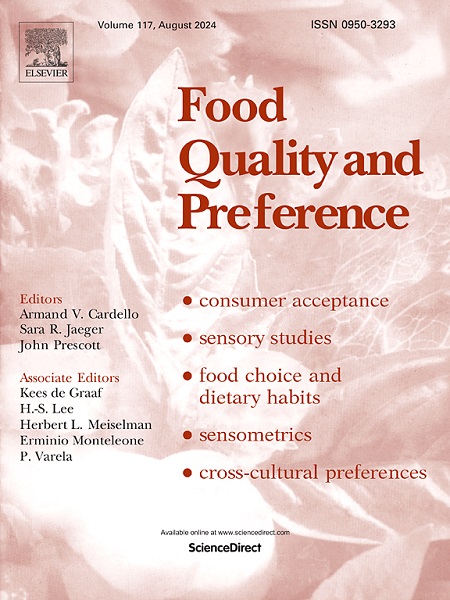When tradition turns to innovation: Japanese consumers' evaluation of new food products
IF 4.9
1区 农林科学
Q1 FOOD SCIENCE & TECHNOLOGY
引用次数: 0
Abstract
This paper combines insights from personality research and innovation acceptance literature to investigate Japanese consumers' evaluation of innovative and traditional food products (TFPs) using the case of Bavarian foods exported to Japan. We argue that TFPs change their product characteristics once exported so that their evaluation emulates that of product innovations. It is hypothesized that personality traits positively affecting innovation acceptance also drive the acceptance of imported TFPs. Additionally, the traditional component of TFPs is assumed to be assessed based on the exporting country's stereotype. Two studies show the importance of personality traits and a positive country image in accepting TFPs and innovations. Furthermore, results confirm that imported TFPs are evaluated similarly to innovations, highlighting the transformation process of this product category once leaving the home country. The results provide implications for food producers and marketers who aim to promote their products abroad. Personality-based communication is recommended for innovative products and TFPs to reach particularly open and innovative consumers.
求助全文
约1分钟内获得全文
求助全文
来源期刊

Food Quality and Preference
工程技术-食品科技
CiteScore
10.40
自引率
15.10%
发文量
263
审稿时长
38 days
期刊介绍:
Food Quality and Preference is a journal devoted to sensory, consumer and behavioural research in food and non-food products. It publishes original research, critical reviews, and short communications in sensory and consumer science, and sensometrics. In addition, the journal publishes special invited issues on important timely topics and from relevant conferences. These are aimed at bridging the gap between research and application, bringing together authors and readers in consumer and market research, sensory science, sensometrics and sensory evaluation, nutrition and food choice, as well as food research, product development and sensory quality assurance. Submissions to Food Quality and Preference are limited to papers that include some form of human measurement; papers that are limited to physical/chemical measures or the routine application of sensory, consumer or econometric analysis will not be considered unless they specifically make a novel scientific contribution in line with the journal''s coverage as outlined below.
 求助内容:
求助内容: 应助结果提醒方式:
应助结果提醒方式:


